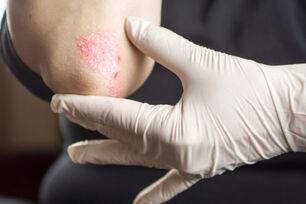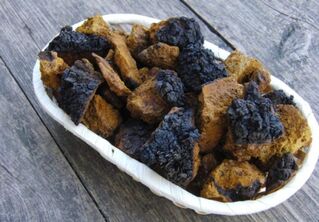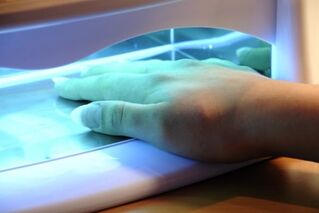Just taking medicine is not enough to cure psoriasis on different parts of the body. The greatest results will only be delivered by the integrated approach. So you need to know all the possible ways to treat a skin disease.
Principles of psoriasis treatment
Before you begin the war against psoriasis, you need to consider that the disease cannot be cured. Therapy is aimed at combating the symptoms, restoring the protective functions of the body, and the possibility of a stable clinical remission.

The treatment principle includes several fields:
drug therapy- ;
- physical therapy (used in conjunction with other forms of treatment);
- unique alternative treatment; Traditional medicine
- .
When treating psoriasis, it is very important to take into account the individual characteristics of the body. What works for one patient doesn't always work for another. Every patient diagnosed with psoriasis needs serious care and special attention.
Medication for psoriasis
External facilities
To eliminate the inflammatory process, itching, swelling and other symptoms of psoriasis, topical medications are used. These include:
Ointment- ; cream
- ;
- lotion; spray
- ;
- gel.
Such funds should be used for mild to moderate illnesses. In severe forms, in most cases these drugs are used together with other strong drugs. In this case, the doctor must determine the severity of the disease, taking into account individual intolerance to a particular drug. External remedies can be used for patients of any age.
In medical practice, ointments and creams are widely used, divided into hormonal and non-hormonal. It is better to use non-hormonal drugs, as they have no side effects. However, in some cases, these drugs cannot beat the disease. Then hormonal drugs should be used, performing the following actions:
- is intended for use only on lesions; Ointment
- suspends the development and spread of lesions;
- penetrates the deep layers of the epidermis;
- removes itching, peeling skin;
- relieves the symptoms of an allergic reaction.
For treatment, drugs of the glucocorticosteroid group are also used, which have the following properties:
- removes the inflammatory process;
- removes itching and peeling of the skin;
- slows down the process of cell division.
Steroids can have moderate and strong effects. In severe forms of psoriasis, drugs with a strong effect are prescribed, in stages of the mild course - lighter drugs. Topical corticosteroid treatment includes:
- Hydrocortisone acetate. The ointment is applied to the surface of the skin in a thin layer. The course of treatment is 6 to 14 days. If this is not enough, the course is extended to three weeks.
- Fluocinolone acetonide. It is used for all stages of psoriasis. With a mild and moderate degree of the course of the disease, it is used as a main remedy, with a severe form - as an auxiliary method.
- Prednisolone ointment. The course of treatment is 2 weeks. It is applied only in an even layer on the inflamed areas, bandaging is not recommended.
Although effectively treated with hormonal drugs, unfortunately, their use can cause side effects. They have a strong effect not only on the epidermis, causing the epidermis to lose color and thinner, but when used, there is a risk of relapse. With hormone therapy, addiction develops, so other means cannot help. Due to long-term use of steroids, muscle weakness, decreased blood pressure and weight, and anorexia. Steroids are sold in pharmacies without a prescription and are not recommended for long-term use.
The pharmaceutical industry has a wide variety of hormone-free psoriasis treatments that are great for fighting the symptoms without harming the body.
All non-hormonal drugs are divided into several groups:
Various ointments (they do not contain active ingredients).
Salicylic ointment. It has anti-inflammatory and antibacterial effects, softens the skin, accelerates the exfoliation of the horny layer. Ointment contains salicylic acid, which quickly removes the affected area. Ointment should be applied in a directional direction, since an allergy is possible.
Zinc ointment. An antiseptic has a drying and protective effect, which can reduce inflammation. Ingredients include zinc oxide. It is not recommended to use the ointment for more than 30 days, as an addictive effect may develop.
Zinc pyrithione. The drug is based on pyrithione zinc, which copes well with inflammatory processes, has antibacterial and antifungal effects.
- Tar ointment. Preparations include turpentine and birch. These include anthrasulfonic, anthramine and colloidin ointments, which have the ability to reduce inflammation, repair damaged skin and have antiseptic effects. Ointments containing tar should be started in small doses. If allergic reaction does not occur, the dosage may be increased.
- Ointment contains grease. These ointments are considered to be the most effective among non-hormonal agents.
- Ointment contains vitamins. Retinol palmitate. Ointment with vitamin A. It has a healing effect, restores and normalizes metabolic processes in tissues. Calcipotriol with vitamin D, has an inhibitory effect on cells of the stratified epithelium (keratinocytes). Cannot be combined with salicylic acid ointment.
- Oil-containing products. Naphthalene ointment. The composition of the ointment contains Naftalan oil - a substance with a very unpleasant odor, but has a unique effect. Promotes rapid skin recovery, has antibacterial, antipruritic and absorbent effects.
Oral Medications
One of the ways to reduce the symptoms of the disease is to take pills. These are tablets capable of providing the body with the necessary ingredients. Oral treatment is much more effective than topical medication. Tablets preparations can be prescribed only by the doctor, taking into account the age and physiological characteristics of the patient. Psoriasis pills are divided into two groups:
Hormonal- hormones - the most effective means, their use allows you to achieve positive results in the short term, but they can cause many side effects;
- contains no hormones - performing additional functions for the action of essential drugs.
The onset of psoriasis is motivated by internal causes that cause a violation of metabolic processes in the body.
Therefore, you need to switch to stronger drugs:
- Methotrexate. Tablets can significantly slow the process of cell division. Applied for pustular and erythematous psoriasis. It is widely used to treat psoriatic arthritis. However, it has many side effects.
- Meglumine sodium succinate. A new generation drug with a wide spectrum of effects. Used for severe psoriasis and is only available with a prescription.
Alternative treatments
Non-medicinal approaches and approaches are used as alternatives. Recommended:
- visit a hot spring;
- taking a skin peeling course Garra Rufa (therapeutic modal therapy by a therapeutic by a therapeutic by a therapeutic modaltherapy);
- undergoes sludge healing sessions;
- fresh water hydrotherapy;
- plasmapheresis; massage course
- .
However, these methods are only effective when combined with traditional treatments.
Physiotherapy for psoriasis
Physiotherapy is an important part of psoriasis treatment. In the early stages of the disease, it is not possible to use physical therapy. These methods began to be used as symptoms subside, and they were carried out in the hospital.
Physical exposure methods include:
- UV radiation;
- puva therapy; Application of ultrasound
- ;
- laser treatment; chemotherapy by laser
- ; Magnetic therapy
- (the application of static magnetic fields);
- exposed to cold (cryotherapy);
- electrosleep;
- X-ray therapy
Diet therapy for psoriasis
Diet plays an important role in the treatment of psoriasis. Therefore, it is important to know what foods should form the patient's diet. Proper nutrition restores bowel function, helps relieve painful symptoms, boosts the immune system and protects the body from new relapses.

List of products adversely affecting the condition of the skin and hair:
- Smoked and salted foods. The ingredients contained in the product affect the functioning of the digestive tract, which can negatively affect the condition of the epidermis.
- Citrus fruit. Large amounts of essential oils are found in the colored peel of the fruit, so the juice made by industrial methods negatively affects the patient's condition.
- Nuts. They are a powerful allergen.
- Fatty foods.
- Alcoholic beverages. They interrupt the work of the liver, cannot cope with the filtration of the blood from harmful substances, adversely affect the state of the dermis.
- Chocolate and cocoa-containing products are potent allergens.
- High-dye products.
Diet for psoriasis must include:
- vegetables and fruits;
- cereals;
- dairy products;
- fish;
- chicken;
- green vegetables.
Psoriasis requires plenty of water to drink. You need to drink up to two liters per day.
Traditional medicine formula for treating psoriasis
It is possible to effectively treat psoriasis with traditional medicine. These can be homemade products for internal use:
- decoctions and infusions;
- tablets and powders;
- is meant with many ingredients.
Infused flax seeds. Helps purify the body of harmful substances, slows down the progression of the disease. Pour 20 g of seeds into a thermos flask, pour boiling water (250 ml). Before going to bed take activated charcoal (2 tablets). Morning on an empty stomach, drink tincture, eat seeds.
The color of the bay leaves. Effective at the very first signs of psoriasis. Pour boiling water over chopped bay leaf. Allow to cool and stretch.
Chaga birch mushroom. The active ingredients contained in chaga mushroom restore the condition of the epidermis. Pour mushrooms (100 g) with hot water (1 l) overnight. In the morning, grind the mushrooms with a blender into a paste-like consistency. Boil the broth 40 degrees, pour in the chopped mushrooms. Insist for three days.

For external use used:
- homemade ointment; shampoo
- ;
- collection of medicinal herbs.
For more effective treatment, it is recommended to apply herbal ointment to the affected areas of the body.
Propolis ointment. Blend 20 g of propolis and add 350 g of butter. Heat in a water bath. Stress, overload. Applies to places localizing arrays. Store in the refrigerator.
Birch bud ointment. Crush birch buds (100 g). Mix with tar (180 g) and ash (50 g). Stir until smooth. Rub onto affected area, wrap with cling film.
Home therapeutic baths are also helpful for psoriasis. Mix cord and sambari (100 g each) and pour three liters of water. Dissolve sea salt. Let it incubate for an hour. Fill the tub with warm water.
Green clay can be used to treat it by combining with sea salt. After such a bath, the skin becomes very soft.
Effective remedy
Treatment of psoriasis in the elbow should be carried out in a complex way, including the following:
- take vitamins;
- diet;
- external treatment;
- physiotherapy;
- projector lamp.
A topical medication (ointment, cream) is used to treat a disease of the knee. Perhaps the appointment of sedatives and antihistamines for treatment is complicated. When the bleeding is heavy, anti-inflammatory drugs are prescribed.
Treating psoriasis on the palms of the hands and feet is quite difficult. The main reason is because these parts are constantly irritated by rubbing with clothes and doing frequent washing. If treatment with external agents does not give positive results, then ultraviolet radiation is indicated.

Treatment of psoriasis during remission
Once remission has begun, all recommendations must be followed in order to maintain this state and prevent the disease from recurring. To prevent psoriasis from going away on its own for a long time, you need to note:
- You cannot interrupt your treatment, continue taking the prescribed medicines.
- Do not use new medicines other than those already prescribed.
- Symptoms of infectious diseases should be promptly eliminated.
- During remission, try not to damage the skin.
- Avoid a nervous breakdown.
- Don't over-sunbathe.
- Avoid contact with chemicals.
- Try to wear only natural materials.
- Observing skin care.
During this period, all recommended methods and means should be applied to prevent further progression of the disease.

























